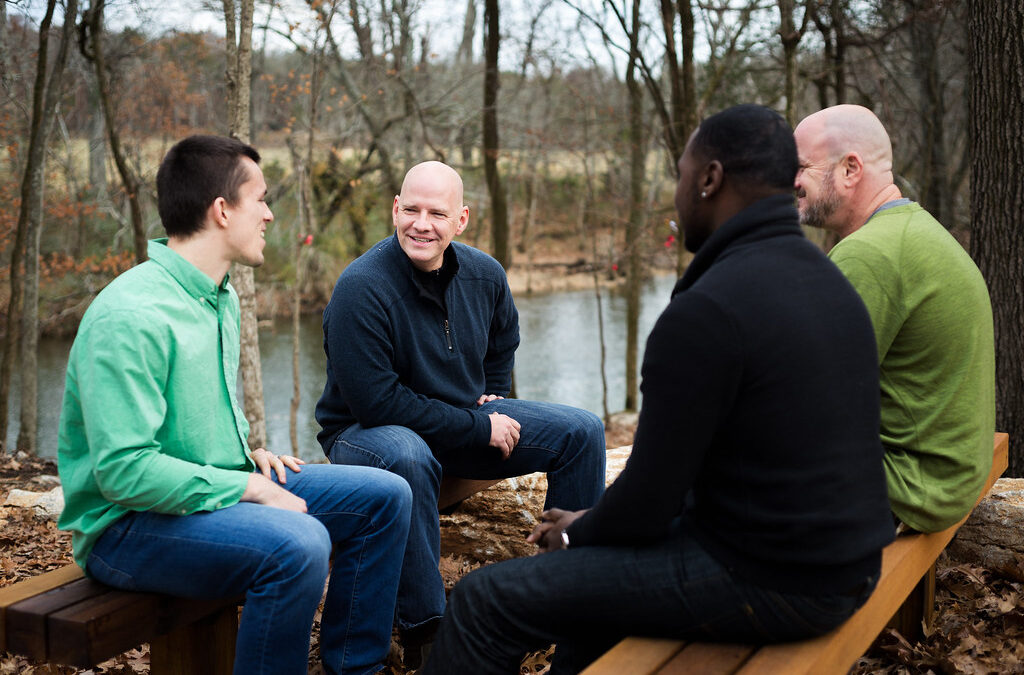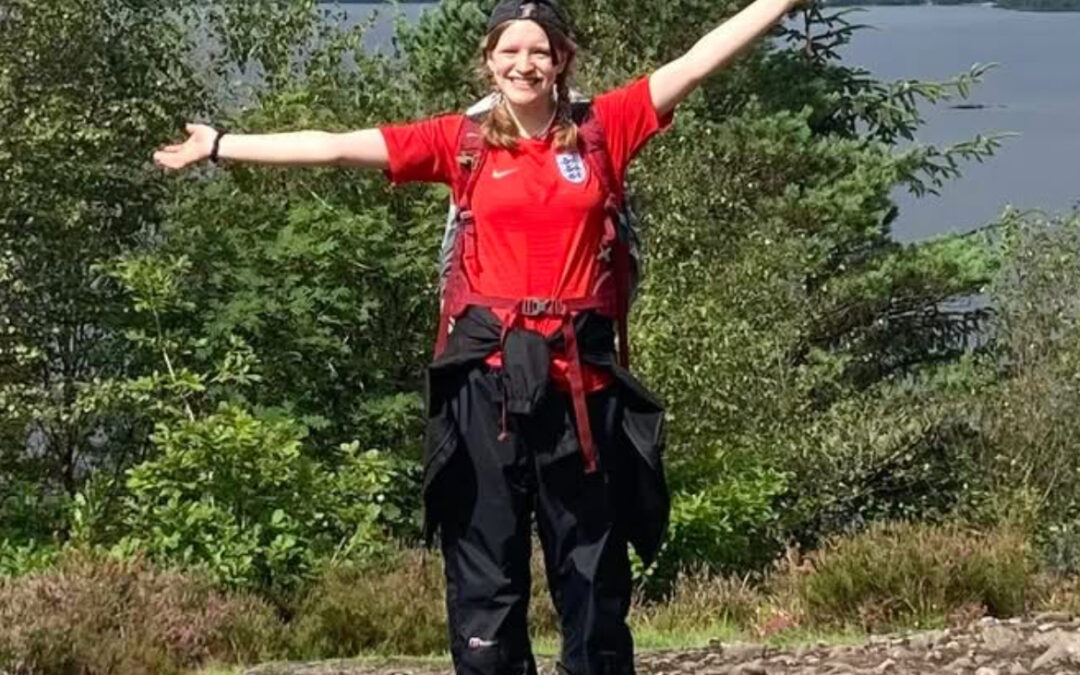Watoto Church is bringing hope to orphans and vulnerable women in Uganda, and their children’s choir is spreading joy and resilience around the world.
On a bridge in Uganda, a father stands poised at the edge, holding his daughter’s hand. In a moment of agonising hesitation, he makes an unthinkable choice. He abandons her child before fleeing into the shadows.
Born in Uganda, 25-year-old Ritah Babirye has known the pain of abandonment from an early age. After her biological parents separated, she was raised by her father and stepmother. But even that stability didn’t last. When she was eight, Ritah was alone and living on the streets.
“Life was tough. There was a time when my father had to abandon me on the streets of Kampala,” she says.
“I was with my stepmother when she went to get water from the well. During that time, I was bitten by a dog. My father didn’t have the money to take me to the hospital. Instead, he left me in a park.”
For two weeks, Ritah was missing. Eventually, her biological mother, who had been working at Watoto Church, heard about her disappearance. She contacted local authorities and searched relentlessly until she found Ritah. Once reunited, she took Ritah to a hospital and later brought her to live with her at the church.
Reflecting on her upbringing, she reveals, “Growing up with my father and stepmother, I never felt love until I joined Watoto. This community showed me care and support.” At Watoto, she discovered a sense of belonging with others who became like family. “Now, I know what I can be in life,” she adds.
Holistic care at Watoto Church
Watoto Church is committed to helping vulnerable women and children in Uganda and South Sudan. Founded in 1984 by Canadian missionaries Pastor Gary Skinner and his wife, Marilyn, Watoto—meaning “the children” in Swahili—aims to uplift and empower those in need. The organisation brings hope and healing to the vulnerable, transforming their lives in a place of war, poverty and instability.
According to Orphan Lifeline Intel, Uganda has 17 million children, and 15% (2.5 million) of them are orphans. As stated by the UN, more than half of Uganda’s children under five suffer from malnutrition, and the country has a 60% child mortality rate.
Today, the church operates three villages and shelters for over 3,000 children and 1,700 babies. It is widely recognised for its children’s choir, which tours globally. “We provide holistic care to raise the vulnerable to be leaders and to bring a positive impact to Uganda,” says Reverend Sunny Cheng, the Team Leader of Watoto Asia.
“We are not just meeting the basic needs, but we give them the best that a leader needs, the opportunity to train and model. That’s why I rephrase this to share that Watoto is a high-quality, holistic leadership training program to raise future leaders for the country.”
Pastor Skinner and his wife founded KPC in 1984 during the Uganda-Bush war. Reverend Cheng mentioned that they established the church during a chaotic time of civil war and violence. At that time, Uganda faced a significant HIV/AIDS outbreak, leading to many deaths. The population was about 20 million, with nearly 2 million orphans and many widows.
If you’re enjoying reading this article, why not check out this article about community centre volunteers here.
Cultural issues remain
Reverend Cheng said there are also cultural issues that are getting in the way of children being brought up with their families.
“Even now, we still have so many children being abandoned,” says Ritah Angom, a caregiver at Watoto Village. “And there are also children with mothers who are not attending school. Or, because of the war and disease, they end up not being able to care for their kids. These kids have grown up without anyone raising them. Their mothers can’t care for their children because no one will employ them.”
Challenges such as poor education, lack of jobs, water scarcity, poverty, and corruption leave many feeling neglected. While cultural changes take time, the Watoto community continues to be a beacon of hope for those in need.
“Our vision is to celebrate Christ and care for the community,” says Ritah Angom. “We know that without Him, we can’t survive. We trust Him to help us through our challenges, such as poverty and corruption.”
Watoto village: beyond shelter and schooling
Watoto Village has brought hope to conversations with over 4,000 women. The village offers essential programs, including Bible study, tailoring, and English proficiency. Through this training, some women will be recruited as long-term staff, while others will gain the skills needed to support themselves. Watoto aims to create lasting change for future generations.
Reverend Cheng recalls being deeply impressed by the scale and sincerity of Watoto’s outreach during his first visit. “We’ve never heard of a church serving the community this way,” he says. “We were truly moved by their love, quality, and resources.”
Watoto collaborates with the government to care for abandoned babies, taking in many who arrive in poor health, including premature infants. They use incubators to nurture these children until they are two to three years old, and then transition to the village. Here, children are placed in family-like homes, where a widow or single mother cares for eight children. Men from the church visit every weekend to serve as father figures through the “Father’s Heart” program, providing lasting mentorship.
“Watoto is my dream ministry,” says Reverend Cheng. “We believe in holistic development. We care about every aspect of a person, not just their spiritual needs.” The village is well-equipped, featuring a clinic, a dental clinic supported by Hong Kong dentists, and various social work, sports, and academic facilities. Children can choose between a Sports Academy and an Academic Program with music and arts opportunities.
Watoto Children’s Choir
One of the most significant funding sources is their Children’s Choir. They have performed for Her Majesty Queen Elizabeth II and award-winning artists such as Chris Tomlin, Israel Houghton, and Martin Smith.
“It’s a big privilege for us, but God has chosen us to share His love,” says Ritah Angom. “We’re trying to share His love the best way we can—through our stories, music, dance, smiles, and connecting with people wherever we go.”
The upcoming international tour will deliver a powerful message of resilience and hope, showcasing how African youth are rising to become the leaders of tomorrow. The Watoto Children’s Choir will perform songs from their latest album, Better Days–There Is Hope. On stage, a group of Ugandan children who have lost one or both parents will sing, dance, and share their personal stories. Through their performances, they will speak to the strength found in community and faith. Despite feeling abandoned, lost, or broken, they have gotten a new lease of life.
However, the pandemic brought many challenges to the children’s choir. “Our finances primarily come from sponsorships. In Asia alone, we lost more than 30% of our sponsors,” says Reverend Cheng. “The fundraising choir tour was challenging. This isn’t due to a lack of money. Often, we end up running a concert with zero sponsors.”
Due to this situation, people in Watoto village have not eaten meat for years and have been using beans as a substitute for protein. “The good thing is we have a farm,” says Reverend Cheng. “Our farm produces vegetables and food, but we don’t have the money to buy meat.
Ritah’s testimony
The Watoto community remains resilient, working tirelessly to uplift those who have been abandoned. Ritah Babirye is a testament to this hope. Now an electrical engineer and conductor of the Watoto children’s choir, she reflects on her past. “My biggest challenge is my childhood,” she says. “It hurts. Even when I think of the past, it hits me hard. I struggle with trusting others and feeling loved because of what I’ve gone through.”
Yet, even with her past weighing on her, Ritah Babirye graduated from university in 2023. “I lean on God when facing challenges,” she says. “God provides love and mercy, allowing me to love despite the hurt I’ve experienced.” Through Watoto’s nurturing environment, Ritah has transformed her story of abandonment into one of empowerment and hope.
“Love has healed the brokenness from long ago,” says Reverend Cheng. “Many people can spend their entire lives unhappy due to rejection. However, abandoned by their mothers, these children are incredibly happy because they receive abundant love.”
In the years following the pandemic, challenges remain for the Watoto community, but hope persists. With unwavering faith and resilience, individuals continue to transform their lives into something meaningful. Through love and support, Watoto is not just a dream. It’s a miracle unfolding in the lives of those once abandoned and inspiring a brighter future for generations to come.



